As a new restaurant owner, starting a new restaurant is a complex yet exciting journey. There are many factors to consider—what will your restaurant look like? Where will it be located? What services will you offer? What kind of staff will you need to bring your vision to life?
A well-structured business plan helps secure funding, manage spending, and avoid costly mistakes. Whether you’re launching a café, bistro, or takeaway, knowing your initial setup costs and restaurant startup costs from the start ensures long-term success.
We’re here to guide you through the financial side of restaurant ownership, breaking down the key expenses so you can live your dreams. Let’s dive in!
Breaking Down the Numbers: Comprehensive Cost Breakdown
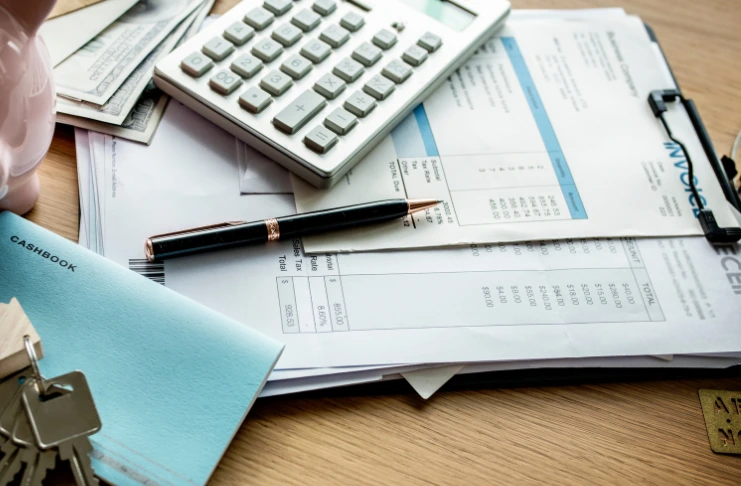
Starting a restaurant in the UK involves various expenses related to securing a commercial space, including construction costs, that can fluctuate based on location, size, and concept. Below is a comprehensive breakdown of these costs:
1. Premises and Property Costs
Monthly rental costs vary significantly:
- London: London’s retail rental prices vary widely depending on the borough. For instance, Kensington and Chelsea have average annual rents of £86.18 per square foot.
- Major Cities (e.g., Manchester, Birmingham): In Manchester, retail spaces can command rents as high as £220 per square foot per year. Birmingham’s retail rents average £26.13 per square foot annually.
Choosing a location that balances visibility, accessibility, and cost is crucial for long-term success.
2. Renovation and Fit-Out Expenses:
Transforming a space into a functional restaurant entails:
- Minor Renovations: On average, a basic restaurant fit-out can range from £1,000 to £3,000 per square metre.
- Comprehensive Fit-Out: For higher-end restaurants or those with more complex designs, costs can range from £3,000 to £10,000 or more per square metre.
- High-End Design and Renovation: Kitchen construction can cost between £300-£500 per square foot, and dining room construction between £150-£300 per square foot.
Careful planning ensures that renovation investments align with the restaurant’s brand, functionality, and long-term goals.
3. Kitchen Equipment Investments
Investing in essential restaurant equipment and kitchen equipment is a major part of restaurant startup costs in the UK. The total expenditure depends on the restaurant’s size, menu complexity, and the quality of equipment chosen. Below is a breakdown of these costs:
- Ovens (£1,000 – £22,000): Combination ovens are essential in commercial kitchens, offering flexibility for baking, roasting, and steaming. Prices vary based on size and model.
- Cooking Ranges (£2,000 – £15,000): Multi-purpose stations that accommodate various cooking techniques, ideal for high-volume kitchens.
- Commercial Hobs (Up to £4,500): Large gas hobs with multiple burners, crucial for preparing soups, sauces, and other stovetop dishes.
- Salamander Grills (Up to £4,500): High-powered grills used for broiling, toasting, and finishing dishes, with premium models reaching £4,500.
- Bratt Pans (Up to £7,000): Versatile appliances designed for bulk cooking, suitable for frying, boiling, and braising large quantities of food.
- Refrigerators/Freezers (£700 – £8,000): Basic upright fridges start at around £700, while larger units can cost more than £2,000.
- Stainless Steel Workstation (£500 per metre): Durable and hygienic surfaces for food preparation are required which cost approximately £500 per metre.
- Dishwashers (£1,000 – £5,000): Under-counter models start around £1,000; larger units can cost more.
- Sinks and Workstations (£500 – £3,000): Stainless steel stations for cleaning and preparation purposes cost around £500 – £3,000.
- Ventilation Hoods (£2,000 – £5,000): Crucial for air quality maintenance in the kitchen and can cost around £2,000 – £5,000.
- Fire Suppression Systems (£2,000 – £5,000): Mandatory safety equipment to address potential fire hazards cost around £2,000 – £5,000.
- Small Wares (Approximately £80,000): Includes tableware, utensils, glassware, and other essentials, and the cost range is approximately £80,000.
- Furniture (£5,000 – £40,000): Costs depend on the restaurant’s size and concept, hence would range from £5,000 to £40,000.
Please note that these figures are approximate and can vary based on specific project requirements, regional cost differences, and market conditions.
4. Licensing and Compliance Costs
UK restaurant startups must navigate complex regulatory landscapes, including various occupancy costs. Essential licenses and permits include:
- Food Business Registration: Free
- Premises License: £100 – £1,905 (depending on local authority)
- Personal Alcohol License: £37- £100
Understanding and securing the necessary licenses early helps avoid legal issues and ensures smooth operations.
5. Initial Inventory and Food Costs
Proper inventory management is crucial for a restaurant’s smooth operation, ensuring sufficient stock without excessive waste. Here’s a breakdown of the initial investment required:
- First Stock Investment: For small restaurants, the estimated cost ranges from £10,000 to £25,000. While for medium restaurants, the estimated cost ranges from £25,000 to £50,000.
- Initial Food and Beverage Stock: Typically covers 2–4 weeks of projected sales.
Careful inventory planning helps maintain operational efficiency, control operating expenses, and reduce waste from the start.
6. Staff Recruitment and Initial Payroll
Investing in the right team, including tipped employees, is essential for the success of a restaurant, and recruitment, payroll, and training costs should be carefully planned. Here’s a breakdown of the key expenses:
- Initial Recruitment: Estimated cost is approximately £3,000 per hire. Recruitment expenses encompass advertising vacancies, conducting interviews, and onboarding new employees. It’s been estimated that the average cost of filling a vacancy, including associated labor costs, is £6,125.
- First Month’s Payroll: Estimated cost varies based on staff size and roles. Payroll expenses include salaries, National Insurance contributions, and pension contributions. The average annual salary for a restaurant worker in the UK is approximately £25,200, equating to about £2,100 per month per employee. Therefore, if you employ 10 staff members, the first month’s payroll would be around £21,000.
- Training and Onboarding: Estimated cost ranges approximately £1,530 per employee.
A well-trained and properly compensated staff is key to delivering quality service and ensuring long-term business stability.
7. Marketing and Launch Expenses
Investing in marketing costs and launch activities is crucial for establishing a strong presence in the competitive UK restaurant industry. While specific costs can vary based on factors such as location, , here’s a general breakdown of potential expenses:
- Local Digital Marketing: Estimated cost ranges from £2,000 to £5,000.
- Launch Event and Promotional Materials: Estimated cost ranges from £3,000 to £10,000.
- Initial Social Media and Online Presence: Estimated cost ranges from £1,000 to £3,000.
Many businesses allocate a percentage of their projected sales revenue to marketing efforts. A common guideline is to spend between 3% and 6% of sales revenue on marketing.
INDUSTRY INSIGHT
| According to industry analyses, the average cost of setting up a new franchise restaurant business in the UK is around £42,000, which includes initial fees, setup costs, and legal advice. However, independent ventures, especially in prime locations like London, can see startup costs ranging from £200,000 to £1 million, influenced by factors such as real estate, fit-out, and staffing. |
Now that you know the costs, let’s explore other factors in starting a restaurant business.
1. Location: Where Your Story Begins

Think of your location as the stage for your culinary performance. It sets the tone and dictates a huge chunk of your small restaurant startup costs.
- Lease vs. Buy: Are you leasing a space or buying it outright? Leasing is often easier on the initial budget, but owning gives you long-term control over your restaurant startup costs.
- Size Matters: A cozy bistro will cost less than a sprawling dining hall, directly impacting the costs of starting a restaurant.
- The Buzz Factor: A spot in a trendy area means higher rent, but also more foot traffic, influencing your restaurant startup costs and potential revenue.
- Legal Fees: Don’t forget the solicitors and surveyors—they’re part of the restaurant startup costs package and affect how much it costs to set up a restaurant.
Choosing the right location is key to attracting your ideal customers to your restaurant and managing the unexpected costs and other costs of starting a restaurant effectively.
2. Renovations and Fit-Out: Setting the Scene
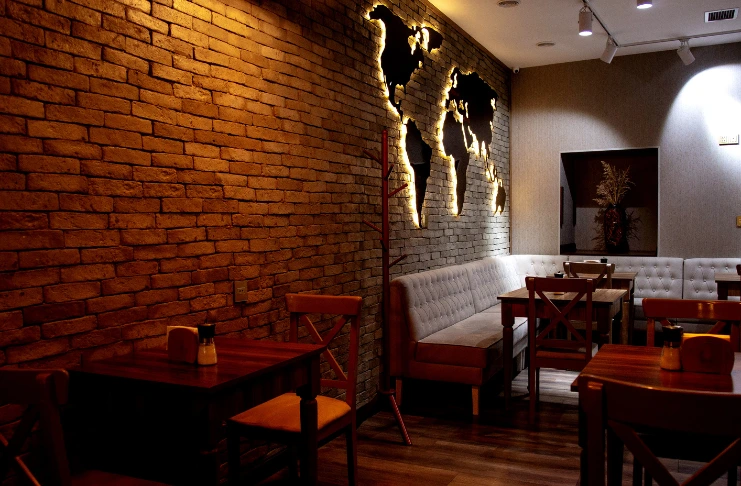
This is where your vision takes shape, but it’s also where your restaurant startup costs can skyrocket.
- The Bare Bones: Plumbing, electrical, and heating—the unglamorous but essential parts of your restaurant.
- Kitchen Kingdom: Ovens, fridges, and all the tools of the trade make up a significant portion of the costs of starting a restaurant.
- Dining Drama: Tables, chairs, lighting, and décor set the perfect vibe, but they also add to your small restaurant startup costs.
- The Bar Scene: If you’re serving drinks, this adds another layer of restaurant startup costs, from licensing to equipment to a well-trained staff.
- Safety First: Meeting all health and safety regulations is non-negotiable and contributes to how much it costs to set up a restaurant.
Creating the right ambiance is crucial, but keeping a close eye on your budget ensures your costs of starting a restaurant stay manageable.
3. Licensing and Permits to Know for Restaurant Owners: Playing by the Rules
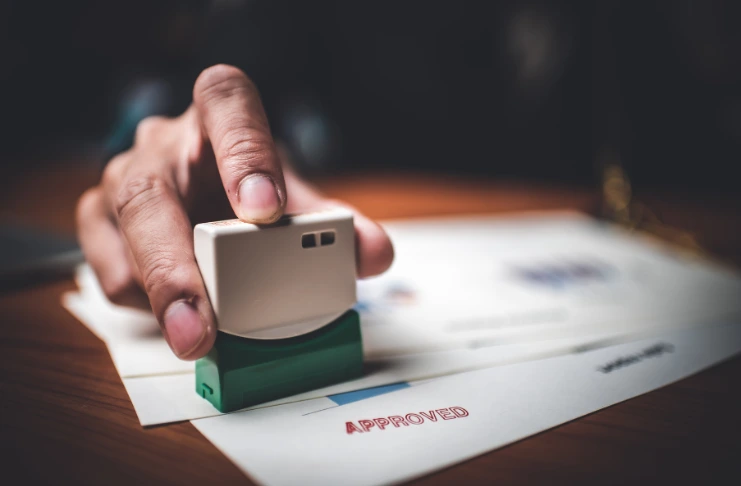
Navigating the legal landscape, like liquor liability, is non-negotiable. Every owner must factor in these unavoidable restaurant startup costs in the UK.
- Liquor License: If you’re serving alcohol, this is a key part of your restaurant startup costs. Licensing costs range from £100 to £1,900, adding to your costs.
- Food Hygiene: Certification is mandatory and contributes to small restaurant startup costs.
- Planning Permission: Renovations require approval, influencing how much it costs to set up a restaurant.
- Business Rates: The local council’s slice of the pie is an ongoing expense in your restaurant startup costs.
- Music License: Want to play tunes? Licensing fees are another factor in the cost of setting up a restaurant.
- Public Liability Insurance: Essential coverage, costing £500 – £1,500 annually.
- Health & Safety Certification: Compliance costs range from £200 to £500.
Although they initially increase the overall cost of starting a restaurant, these steps are mandatory, and skipping them can lead to big trouble, potentially delaying your launch.
4. Kitchen Equipment: The Heart of Your Operation
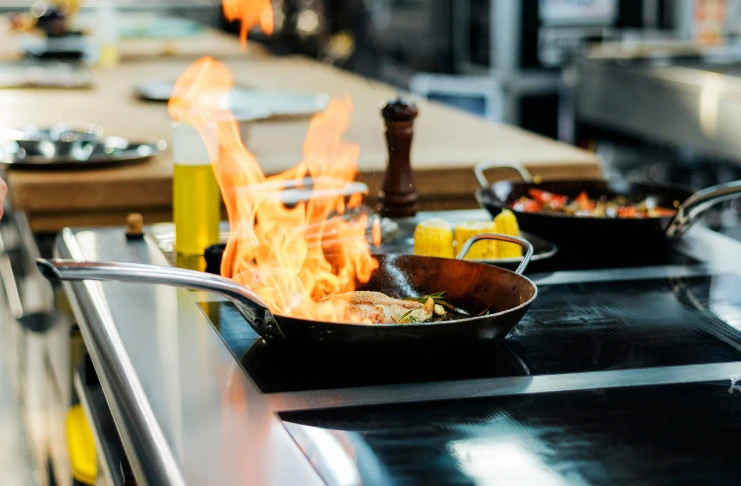
Your kitchen is the engine room, and it needs to be well-equipped. These are major restaurant startup costs.
- Cooking Equipment: Ovens, ranges, fryers – the heavy-duty stuff that forms a key part of your restaurant startup costs.
- Coolers: Fridges, freezers, and walk-in coolers are essential to food storage and add to the costs of starting a restaurant.
- Cleaning: Dishwashers and sinks that keep things sparkling are crucial expenses in your small restaurant startup costs in the UK.
- Pots/pans: Pots, pans, and all those essential utensils may seem minor, but they contribute to overall restaurant startup costs.
- Ventilators: Proper ventilation is a must for health and safety compliance, affecting how much it costs to set up a restaurant.
Investing in quality equipment means efficiency and longevity and is an investment, not an expense.
5. Staffing: Building Your Dream Team
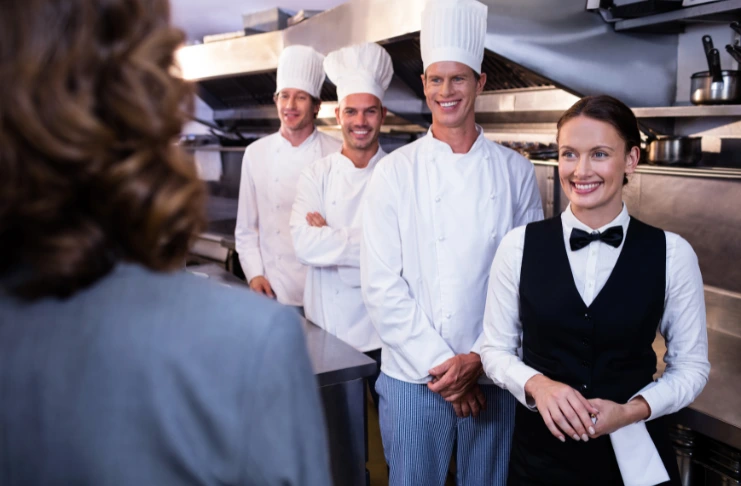
Your staff is your biggest asset. Choosing the right staff can skyrocket your restaurant’s service and enhance customer satisfaction.
- Front of House: Servers, hosts, and bartenders who create that welcoming atmosphere.
- Back of House: Chefs, cooks, and dishwashers who make the magic happen.
- Authorities: These are Restaurant managers and supervisors who keep things running smoothly.
- Training Time: Initial and ongoing training to ensure top-notch service.
- The Pay Packet: Salaries, wages, and benefits.
A happy, well-trained team means satisfied customers, directly impacting the long-term success of your business.
6. Inventory and Supplies: Stocking Up for Success
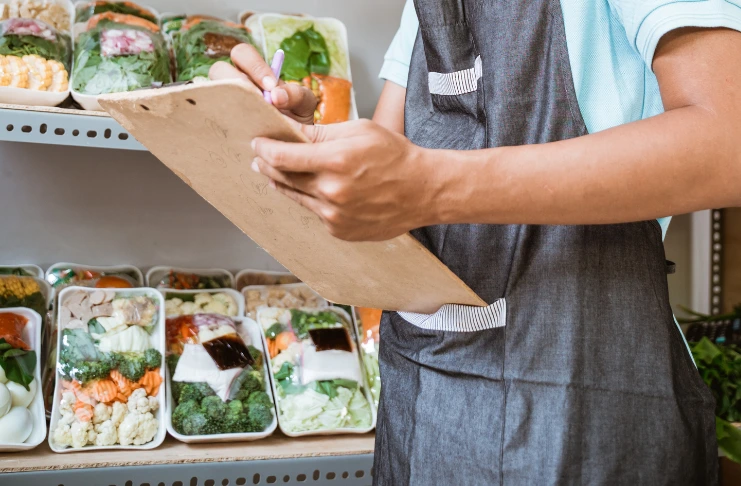
You can’t cook without ingredients, and you can’t serve without tableware. These are recurring costs to consider when setting up your business.
- Food: Ingredients, produce, semi-processed food, processed items, and beverages.
- Cleaners: Cleaning supplies like dish soap, scrubs, and dusters.
- Dishes: Plates, cutlery, glasses, silverware, and linens.
- Packaging: Packaging for takeaway, like boxes and bags.
- Office Essentials: Paper, pens, and software for the admin side.
Smart inventory management keeps waste down and profits up, affecting your overall restaurant startup costs.
7. Marketing and Advertising: Getting the Word Out

Getting noticed is just as important as great food, and effective marketing can save money in your restaurant startup costs and help attract customers . Marketing is key to your restaurant startup costs and helps attract customers.
- Online Buzz: Website and social media to connect with customers.
- Local Love: Flyers, posters, and local ads to reach your community.
- Grand Opening Glam: Launch events to make a splash.
- Press Power: Media outreach to get people talking.
- Digital Domination: Online ads and email marketing to reach a wider audience.
A strong marketing strategy builds your brand and brings in customers, and it is a fruitful area to invest in while setting up your restaurant.
8. Technology and POS Systems for Your Restaurant Business
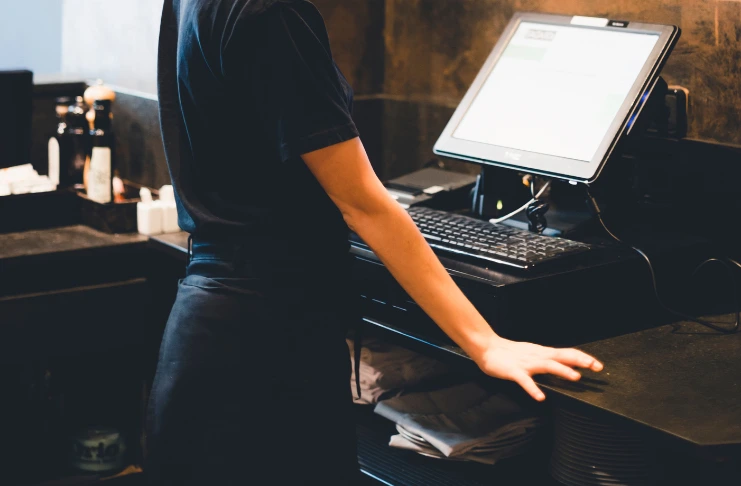
Technology plays a crucial role in modern restaurant efficiency. Investing in the right tools can streamline operations, improve customer experience, and ultimately boost profitability.
- POS Power – A POS system enhances security, speeds up transactions, and provides real-time sales data, making it an essential part of restaurant startup costs.
- Online Orders: Integrating a POS system with delivery platforms automates online order management, reducing errors and improving efficiency.
- Reservation Revolution: Digital reservation systems help manage bookings seamlessly, optimizing table turnover and maximizing revenue.
- Inventory Insights: Inventory management helps track stock levels, minimize waste, and control your day-to-day restaurant business costs.
- Accounting Ace: Automating financial processes improves accuracy and ensures better budgeting, helping manage restaurant startup costs.
Technology streamlines operations and improves customer experience, affecting your restaurant business startup costs.
9. Insurance: Protecting Your Investment

Insurance helps you protect your restaurant business. You never know what might happen, so insurance is a must, adding up the costs of starting a restaurant.
- Public Safety: Liability insurance to cover accidents.
- Employee Protection: Employer’s liability insurance.
- Contents Protection: Contents insurance for your equipment.
- Business Backup: Interruption insurance for unexpected events.
- Building Coverage: If you own the property.
Adequate insurance is crucial as it safeguards your investment and minimizes risks.
10. Contingency Fund: Building a Safety Net

Things don’t always go according to plan, so a contingency fund is essential. This is a wise component of your startup costs.
- Repair Reserves: For those unexpected equipment breakdowns.
- Cost Cushion: To handle fluctuating prices.
- Slow Start Savings: To get you through the early days.
- Legal Leniency: To cover any unexpected legal fees.
A contingency fund provides peace of mind and financial flexibility, impacting your overall restaurant startup costs.
11. Professional Services: Getting Expert Help

Sometimes, you need a little professional guidance. These are important small restaurant startup costs.
- Finance: Accountants to handle your books and taxes.
- Legal: Lawyers to navigate contracts and compliance.
- Business: Consultants to help with planning and operations.
- Design: Architects and designers to create your space.
- Marketing: Agencies to build your brand.
Professional help can save you headaches and money in the long run, influencing the costs of starting a restaurant.
12. Initial Working Capital: Keeping the Cash Flowing
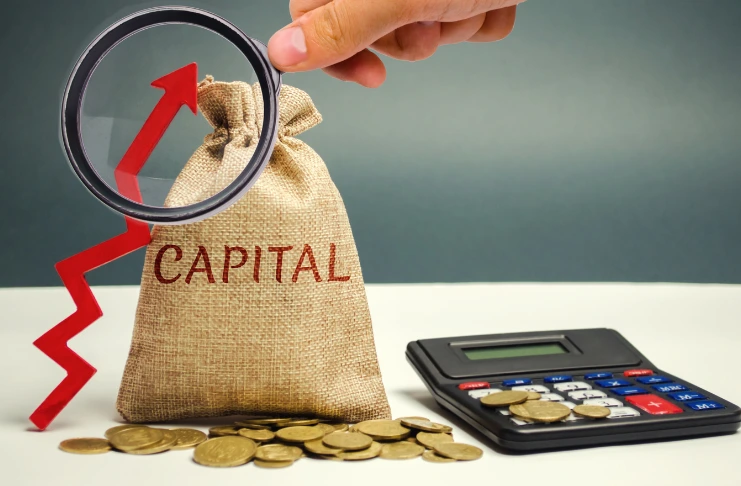
You need cash to cover utility costs and keep things moving in the early days. This is a critical factor in your restaurant startup costs.
- Rent and Utilities: Covering those initial bills.
- Staff Salaries: Paying your team while you build your customer base.
- Inventory Investment: Stocking up on supplies.
- Marketing Money: Funding those early promotions.
- Daily Operations: Covering everyday expenses.
Adequate working capital ensures you can weather the initial storm impacting startup costs.
13. Training and Development: Building a Skilled Team
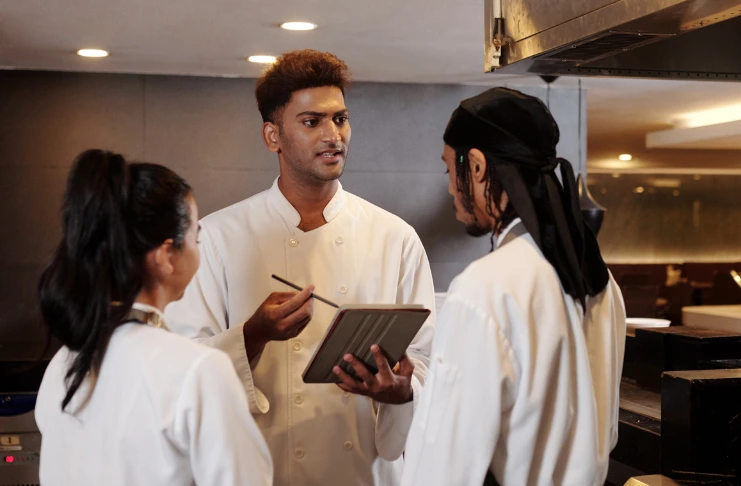
Investing in your staff pays dividends. Build your dream team with skill training.
- Food Safety First: Ensuring hygiene and compliance.
- Service Excellence: Training for top-notch customer interactions.
- Menu Mastery: Familiarize staff with your offerings.
- Leadership Lessons: Developing management skills.
- Continuous Learning: Keeping skills up-to-date.
A well-trained team enhances customer satisfaction, influencing the costs of starting a restaurant.
14. Menu Development: Crafting Your Culinary Story
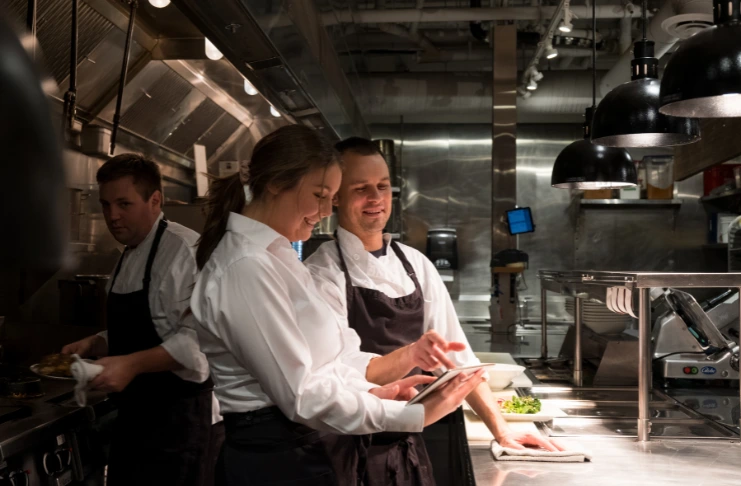
Your menu is your calling card. Note the following:
- Recipe Refinement: Creating unique and delicious dishes.
- Menu Magic: Designing an appealing and easy-to-read menu.
- Visual Victories: Using food photography to entice customers.
- Pricing Precision: Balancing food costs and profit margins.
- Taste Testing: Gathering feedback and making adjustments.
A great menu drives sales and builds your reputation, influencing your restaurant startup costs.
15. Signage and Branding: Making Your Mark

Your brand is your identity. Make a note of the following:
- Exterior Appeal: Signs that draw customers in.
- Interior Impact: Signs that enhance the dining experience.
- Logo Launch: Creating a memorable brand image.
- Menu Messaging: Display your offerings clearly.
- Online Identity: Consistent branding across your digital platforms.
Strong branding creates recognition and loyalty, impacting the costs of starting a restaurant.
16. Waste Management: Doing Your Part

Sustainability matters. Keep the following in mind:
- Recycling Routines: Reducing your environmental footprint.
- Composting Considerations: Managing food waste responsibly.
- Energy Efficiency: Investing in eco-friendly equipment.
- Waste Reduction: Minimizing packaging, single-use items, and wastage.
- Sustainable Sourcing: Choosing suppliers with eco-conscious practices.
Responsible waste management builds a positive image and reduces long-term costs.
17. Ongoing Costs: The Long Haul
Remember, the costs don’t stop after opening. These are the sustained realities of small restaurant startup costs in the UK.
- Rent and Utilities: Monthly overhead.
- Payroll: Staff salaries and wages.
- Inventory Replenishment: Ongoing food and supply purchases.
- Marketing Maintenance: Keeping your brand visible.
- Equipment Upkeep: Regular maintenance and repairs.
Understanding the typical restaurant ongoing costs and managing them is crucial for long-term profitability, impacting the overall costs of starting a restaurant.
Conclusion
Starting a restaurant in the UK is both a challenging and rewarding journey. Running a successful restaurant goes beyond serving delicious food—it requires careful planning, budgeting, and a sustainable business strategy. By understanding your startup and ongoing costs, you can set realistic expectations and build a strong foundation for your venture. With thorough preparation, smart financial management, and a passion for hospitality, you can turn your culinary vision into a thriving reality.
Frequently Asked Questions
1. How much money do you need to start a restaurant in the UK?
Starting a restaurant in the UK typically costs between £50,000 and £500,000, depending on size, location, and concept. Costs include rent, renovations, equipment, licenses, and staffing. A smaller café or takeaway may require less capital.
2. What is the profit of a small restaurant in the UK?
A small restaurant in the UK can earn 10-15% profit margins, with annual profits ranging from £20,000 to £100,000. Success depends on location, pricing, and operational efficiency. Managing costs and maximizing customer retention are key to profitability.
3. What is the most expensive part of running a restaurant?
The most expensive part of running a restaurant is typically rent, labor, and food costs. Staffing can take up 30-50% of revenue, and rent varies significantly by location.
4. What is the startup cost for a restaurant?
Startup costs vary but are usually £50,000 to £500,000, depending on the concept and location. Costs include rent, kitchen equipment, licensing, initial inventory, and marketing. A small takeaway or café can start with £20,000 to £100,000.
5. Is 50k enough to start a restaurant?
£50,000 might be enough for a small café, food truck, or takeaway, but not for a full-service restaurant. You would need careful budgeting, a lean business model, and possibly second-hand equipment.
6. Can I open a restaurant with 100k?
Yes, £100,000 is enough to start a small to mid-sized restaurant in an affordable location. However, upscale restaurants or prime city locations may require more investment.
7. How much money do you need to invest in a restaurant?
Restaurant investment varies but generally requires £50,000 to £500,000, depending on scale and type. Investors should consider location, business model, and expected return on investment.
8. How much money does it cost to start a restaurant?
The cost of starting a restaurant depends on the size and type, usually between £50,000 and £500,000. A food truck or small café may cost £20,000 to £100,000. Larger, full-service restaurants in prime locations require much higher investments.
9. What is the average cost to start a restaurant?
The average cost to start a restaurant in the UK is £150,000 to £300,000, depending on location and concept. Smaller takeaways or food trucks can start for £20,000 to £100,000. Costs include rent, licensing, renovations, equipment, and marketing.
10. What is the most expensive part of owning a restaurant?
The most expensive part of owning a restaurant is staff wages, rent, and food inventory. Labor costs typically account for 30-50% of revenue, and rent varies by location. Food costs, food waste, utilities, and equipment maintenance are also significant costs.





